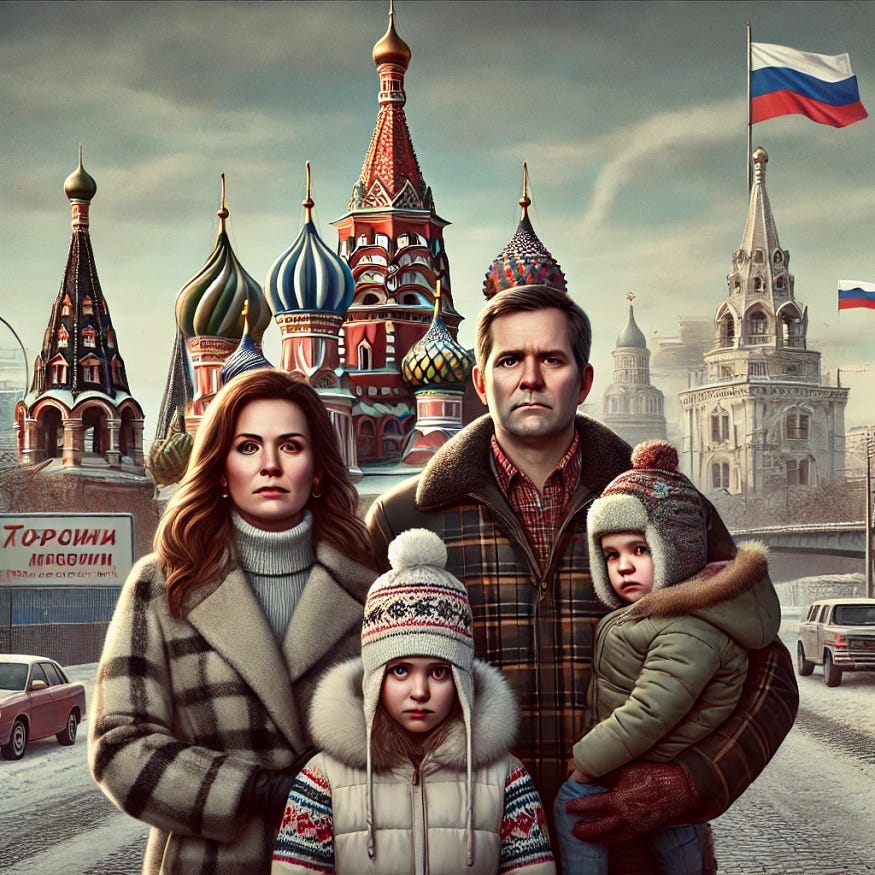Conservative Family ‘Disappointed’ After Moving to Russia to Escape LGBTQ Ideology
Seeking a haven from LGBTQ influence, an American family relocates to Russia, only to find that the reality of life abroad is far more complex than anticipated.
In a world where cultural and ideological divides seem to be widening, one conservative American family made the drastic decision to move to Russia, seeking refuge from what they perceived as an increasingly pervasive LGBTQ ideology in their home country. However, what they found in their new home did not align with their expectations, leaving them feeling disappointed and disillusioned.
The Decision to Leave
The Johnson family, originally from a small town in the American Midwest, had always held conservative values close to their hearts. As debates over LGBTQ rights intensified in the United States, they felt increasingly alienated. The legalization of same-sex marriage, the inclusion of LGBTQ topics in school curricula, and the growing visibility of LGBTQ individuals in media were among the changes that made the Johnsons feel that their country was moving in a direction that conflicted with their beliefs.
After much deliberation, the family decided that a move to Russia — a country known for its conservative stance on social issues and its legislation against what it terms “gay propaganda” — would provide a more comfortable environment to raise their children according to their values.
The Reality in Russia
Upon arriving in Russia, the Johnsons initially felt a sense of relief. The lack of visible LGBTQ representation in public life seemed to affirm their decision. However, as they began to settle into their new life, they encountered challenges they had not anticipated.
Cultural Differences: The Johnsons quickly realized that while Russia’s laws might align more closely with their views on LGBTQ issues, the overall cultural environment was vastly different from what they were accustomed to. The language barrier proved to be a significant obstacle, making it difficult to integrate into the local community. Additionally, the family found the Russian education system to be much stricter and less accommodating than they had expected, particularly when it came to their children’s adjustment.
Political Climate: The Johnsons also found themselves uncomfortable with the political climate in Russia. While they appreciated the country’s stance on certain social issues, they were unprepared for the extent of government control over various aspects of life. The lack of freedom of speech and the suppression of political dissent stood in stark contrast to the freedoms they had taken for granted in the United States.
Economic Realities: The family’s financial situation became another point of contention. Russia’s economy, while stable in some areas, did not offer the same opportunities they had in the U.S. The cost of living in a major city like Moscow was higher than they had anticipated, and the job market was challenging for foreigners, particularly those without fluent Russian language skills.
A Growing Disillusionment
As time passed, the Johnsons found themselves questioning their decision. The stark differences between their expectations and the reality of life in Russia became increasingly apparent. They had hoped to find a place where their conservative values would be reflected in everyday life, but instead, they encountered a host of new challenges that made them long for the familiarity of home.
In particular, the family struggled with the realization that they had traded one set of challenges for another. While they had hoped to escape what they saw as an encroaching LGBTQ ideology, they now found themselves in a society where other freedoms were limited. The balance between maintaining their values and living in a restrictive environment proved to be more difficult than they had anticipated.
The Lessons Learned
The Johnsons’ experience serves as a cautionary tale about the complexities of seeking ideological refuge in another country. It highlights the importance of considering the full spectrum of life in a new place, rather than focusing solely on a single issue. While Russia’s conservative stance on LGBTQ matters initially appealed to the Johnsons, the broader cultural, political, and economic realities ultimately left them feeling disillusioned.
As they contemplate their future, the Johnsons are now rethinking their decision. They acknowledge that while the U.S. may present challenges when it comes to their values, it also offers freedoms and opportunities that are not easily found elsewhere. Their experience underscores the fact that no country is without its own set of issues, and that fleeing from one problem can often lead to encountering others.
In the end, the Johnsons’ story is a reminder that the grass is not always greener on the other side, and that navigating the complexities of life and ideology often requires a more nuanced approach than simply seeking refuge in a place that seems to align with one’s beliefs.


